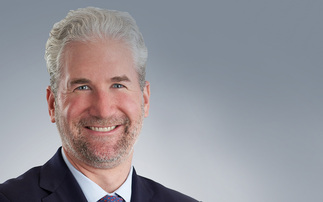Welcome to the second chapter in the exciting four part series from Standard Life Investments, highlighting the opportunities in emerging markets.
I'm once again joined by fund managers Alistair Way and Mark Vincent, and economist Alex Wolf, from Standard Life Investments
Alistair Candlish from Carrington Investments, Tom Davis from Quartet Investment Managers and Andrew Summers from Investec Wealth & Investment also join our panel
Alex, with the huge decline in energy prices over the past few months, what does that actually do to emerging markets?
Alex Wolf: First and most obviously, there is the differential between oil producers and oil importers, but it goes beyond that.
It is more about how the winners win and the losers lose. In emerging markets, the benefits are not the same as in the developed world: in most cases, cheaper oil prices are not directly passed on to the consumers; instead, benefits are more on the fiscal side.
A lot of emerging markets subsidise fuel prices so the biggest beneficiaries have been countries where they have been able to cut subsidies and use that money more efficiently on areas such as infrastructure. Countries that come to mind are Indonesia, India and Morocco.
Frankly, lower oil prices have been hugely beneficial for much of the emerging world, especially emerging Asia where oil imports are a big percentage of those economies. On the flipside, commodities have fallen in lockstep with oil in a lot of cases. In Latin America, you are seeing a lot of countries suffer from this decline in prices as they haven't really used the years of commodity boom to restructure and diversify. We are seeing a clear divergence between Asia and Latin America in terms of how the benefits and drawbacks of cheaper oil play out.
Why does OPEC exist anymore? A cartel is supposed to keep prices up and kill the competition - it's doing neither of those things is it?
Alistair Way: Quite - the incentives for each government are now so misaligned, tied into global geopolitical issues, that things are certainly very different.
As stock pickers, we are quite struck by the scope for making non-consensus views and judgements on the world. It is interesting to us how much the market has put all commodity and oil producers, particularly in emerging or frontier markets, into the same bucket and de-rated them at the same pace.
We have seen some interesting opportunities, even in the countries and sectors you would expect to be most vulnerable in a lower oil price environment.
What does the oil price situation do for Russia?
Tom Davis: From a wealth management perspective, where we are managing multi-asset portfolios for clients, it is important to steer clear of the benchmark.
There are opportunities to invest in the benchmark via exchange traded funds. We much prefer the active management route because then you miss out on cumbersome, state-owned companies, some of which are present in Russia, where returns for investors are just not attractive.
We prefer to invest with active managers who have good resources in terms of macro views and stock picking and would prefer to miss out on Russia and some of the state-owned commodity-based companies.
Andrew, how are you seeing falling energy prices?
Andrew Summers: We see it as unambiguously positive. It's positive from a global economic perspective because consumers are going to spend 2% less on oil this year than they did last year and that is going to translate into about 0.5 to 1% additional GDP growth.
It is beneficial to emerging markets as well: two-thirds of these countries are net oil importers. The reason there has been an historical correlation between oil prices and emerging markets is because countries that are net oil exporters typically suffer about twice as much as countries that gain from them. But oil-producing countries have 25% more savings than oil-importing countries so net-net we think a lower oil price is positive for emerging markets consumption and therefore EM growth as well as for global economic growth.
In emerging markets that are oil producers, where are the warning flags about countries that didn't do enough to diversify their economies away from what people call ‘the curse of oil'?
Tom Davis: Venezuela is a prime candidate. Instead of retaining a lot of the reserves, they became a creditor nation and extended loans to a lot of their allies, such as Cuba, on very favourable terms. Now the oil price has fallen dramatically, it is having serious implications for the loans extended to these countries and we are going to see some issues with the Venezuelans starting to call in some of these debts.
Mark Vincent: It's also a challenge for Nigeria and countries like Libya.
Brazil is in the situation where it kept the subsidies in place but had to do that in order to keep Petrobras afloat, to the extent it is still afloat.
With recent oil price declines supply- rather than demand-led, will we see a different reaction from emerging markets than in the past?
Mark Vincent: The fall in the price of oil timed quite nicely with when companies were setting their capex budgets for the next year. What we have seen is immediate capex cuts, even from companies and countries that are still economic on a cash cost basis. That's very positive for the supply side.
If you cut capex today, production actually continues to grow for six to nine months before you see the benefit of that cut but it is encouraging that supply will tighten.
Tom Davis: OPEC has realised it is very hard to justify an oil price of $100 in a deflation environment and oil has come down with other industrial metals and commodities. Looking at the historical chart, in inflation-adjusted terms, oil is where it should be, but it has taken markets by surprise because it happened very quickly and was very much a shock in that respect.
Andrew Summers: With countries like Saudi Arabia, Venezuela, Russia and Iran, which are the big oil exporters, these were all frankly unattractive on numerous grounds even before the oil crisis. Most people are investing in emerging markets for secular themes that have nothing to do with oil production - it's to do with the growing middle class and the fact these countries now have self-sustaining growth models.
The sell-off in companies incorrectly tarred with the oil brush provides an opportunity if you can take a long-term view.
Mark Vincent: Even in Russia, there are interesting opportunities. An obvious example would be a company like Norilsk Nickel. This is a global commodity getting revenues in dollars but where costs in roubles are now significantly lower so there is some self-help going on.
Another name is Magnit, a retailer that, even in this very difficult macro environment in Russia, is continuing to grow market share and strengthen its position. Our approach is never a blanket one of ignoring countries - we always try to be selective and look for opportunities where the market has overreacted.
How does the panel feel about America becoming independent as an oil consumer/producer - what impact will that have on oil prices longer term?
Alex Wolf: The US does still import a lot of refined petroleum and petroleum products and it is unclear how projections of the country becoming completely self-sustainable in terms of oil will play out.
If oil prices stay this low or even drop a bit more, projections for a self-sustaining US will change. However, the fact shale can turn off and turn back on quickly and the impact that will have on stabilising prices is not going to change and the industry is evolving very quickly. One of the things that is overlooked is that with oil prices a huge input for most of these shale companies, the current lower level is very beneficial.
Alistair Way: The angle on Saudi Arabia is interesting because when the oil price was coming down sharply, we saw pronounced weakness in our Saudi consumer names, for example, which were treated in a fairly undiscerning fashion by the market.
In fact, it is a very rich country and some of the fundamental reforms in terms of female empowerment and the emerging middle class continue and are maybe even accelerating under the new King. This is a good example for a place where fundamentals are getting better while valuations are becoming more attractive.
Alex Wolf: One of the countries we haven't mentioned is Mexico, one that did attempt to diversify its economy away from oil and energy. Unfortunately, the timing didn't work so well in terms of liberalising its energy sector. However, they are committed to reforms and even though prices are low, we feel they will still successfully open up the energy sector. There is a lot of interest from US major oil players in Mexican offshore and they unambiguously benefit from cheap US oil and gas as well.
It is the one country that does benefit from very cheap energy costs in the US so Mexico, although timing is not the best, looks to be in a good position.











